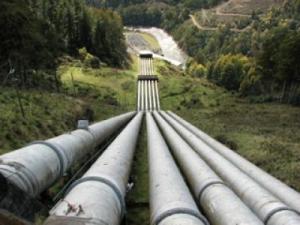Mar 21 2014
The deep-rooted relationships between water and energy are being highlighted during global celebrations marking the United Nations' annual World Water Day.
 This is the 2014 World Water Day theme: Water and Energy. Credit: UN-Water
This is the 2014 World Water Day theme: Water and Energy. Credit: UN-Water
"Water and energy are among the world's most pre-eminent challenges. This year's focus of World Water Day brings these issues to the attention of the world," said Michel Jarraud, Secretary-General of the World Meteorological Organization and Chair of UN-Water, which coordinates World Water Day and freshwater-related efforts UN system-wide.
The UN predicts that by 2030 the global population will need at least 35% more food, 40% more water and 50% more energy. Already today 768 million people lack access to improved water sources, 2.5 billion people have no improved sanitation and 1.3 billion people cannot access electricity.
"These issues need urgent attention - both now and in the post-2015 development discussions. The situation is unacceptable. It is often the same people who lack access to water and sanitation who also lack access to energy, " said Mr. Jarraud.
The 2014 World Water Development Report (WWDR) - a UN-Water flagship report, produced and coordinated by the World Water Assessment Programme, which is hosted and led by UNESCO - is released on World Water Day as an authoritative status report on global freshwater resources. It highlights the need for policies and regulatory frameworks that recognize and integrate approaches to water and energy priorities.
WWDR, a triennial report from 2003 to 2012, this year becomes an annual edition, responding to the international community's expression of interest in a concise, evidence-based and yearly publication with a specific thematic focus and recommendations.
WWDR 2014 underlines how water-related issues and choices impact energy and vice versa. For example: drought diminishes energy production, while lack of access to electricity limits irrigation possibilities.
The report notes that roughly 75% of all industrial water withdrawals are used for energy production. Tariffs also illustrate this interdependence: if water is subsidized to sell below cost (as is often the case), energy producers - major water consumers - are less likely to conserve it. Energy subsidies, in turn, drive up water usage.
The report stresses the imperative of coordinating political governance and ensuring that water and energy prices reflect real costs and environmental impacts.
"Energy and water are at the top of the global development agenda," said the Rector of United Nations University (UNU), David Malone, this year's coordinator of World Water Day on behalf of UN-Water together with the United Nations Industrial Development Organization (UNIDO).
"Significant policy gaps exist in this nexus at present, and the UN plays an instrumental role in providing evidence and policy-relevant guidance. Through this day, we seek to inform decision-makers, stakeholders and practitioners about the interlinkages, potential synergies and trade-offs, and highlight the need for appropriate responses and regulatory frameworks that account for both water and energy priorities. From UNU's perspective, it is essential that we stimulate more debate and interactive dialogue around possible solutions to our energy and water challenges."
UNIDO Director-General LI Yong, emphasized the importance of water and energy for inclusive and sustainable industrial development.
"There is a strong call today for integrating the economic dimension, and the role of industry and manufacturing in particular, into the global post-2015 development priorities. Experience shows that environmentally sound interventions in manufacturing industries can be highly effective and can significantly reduce environmental degradation. I am convinced that inclusive and sustainable industrial development will be a key driver for the successful integration of the economic, social and environmental dimensions," said Mr. LI.
Helping to raise global awareness of World Water Day is the 'Water for Life' UN-Water Best Practices Award, presented annually in two categories to recognize and promote efforts to fulfill international water-related commitments and achieve internationally-agreed targets.
This year's winners will be announced March 21 during a special ceremony in which Mr. Jarraud, UN-Water Chair, Mr. Seishi Kohyama, Mayor of Kumamoto City in Japan, Mr. Miguel Angel Navarro, Ambassador of Spain to Japan, and Mr. Zafar Adeel, from the United Nations University and President of 2014 Jury, will participate.
Other celebrations worldwide held on or before 22 March to mark World Water Day include songwriting, public discussions, talks and debates, sport events, concerts, photo contests, and film screenings.